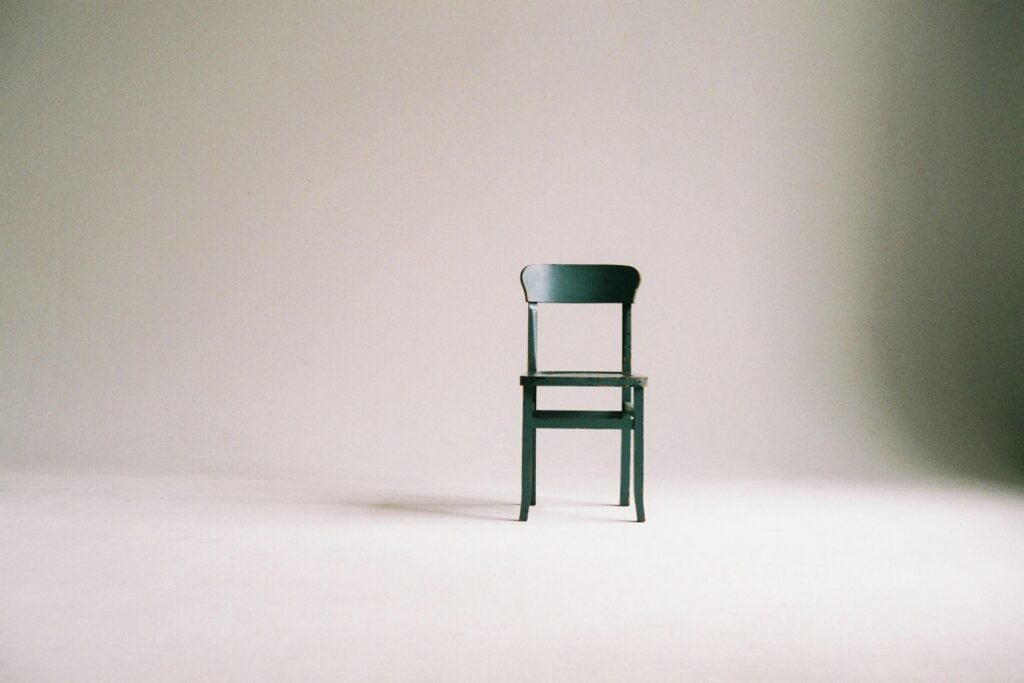
The Connection Between Clutter and Mental Clarity
Ever notice how hard it is to relax or think straight when your space is a mess?
That’s because clutter isn’t just about stuff piling up; it messes with your mind too.
A crowded room can make your brain feel just as packed, leaving you stressed and unable to focus.
It’s like your surroundings reflect your mental state, and when there’s too much going on in your space, it’s harder to tune into what really matters.
Take that junk drawer in the kitchen, for example.
Every time you open it, the chaos makes it harder to find what you need, and that tiny moment of frustration adds up.
Multiply that across your whole home, and it’s easy to see how clutter creates a mental load you might not even realize you’re carrying.
On the flip side, clearing out unnecessary items can give you a sense of relief and make decision making way smoother.
Imagine how much simpler mornings are when your closet isn’t packed with clothes you don’t actually wear; you can grab what you love and go.
What’s wild is how much impact even a small decluttering session can have.
Say you clear out your desk. Suddenly, it’s easier to concentrate on work or school because your brain isn’t distracted by piles of papers or random knick-knacks.
Decluttering creates visual calm, and that calm spreads to your mind, helping you feel more in control.
Even your sleep can improve when your bedroom isn’t crowded with stuff.
Studies suggest that a tidy environment can help you unwind and relax faster, which means better rest at night.
That’s not just good for your energy; it’s great for your overall mental clarity too.
Minimalism as a Tool for Personal Growth
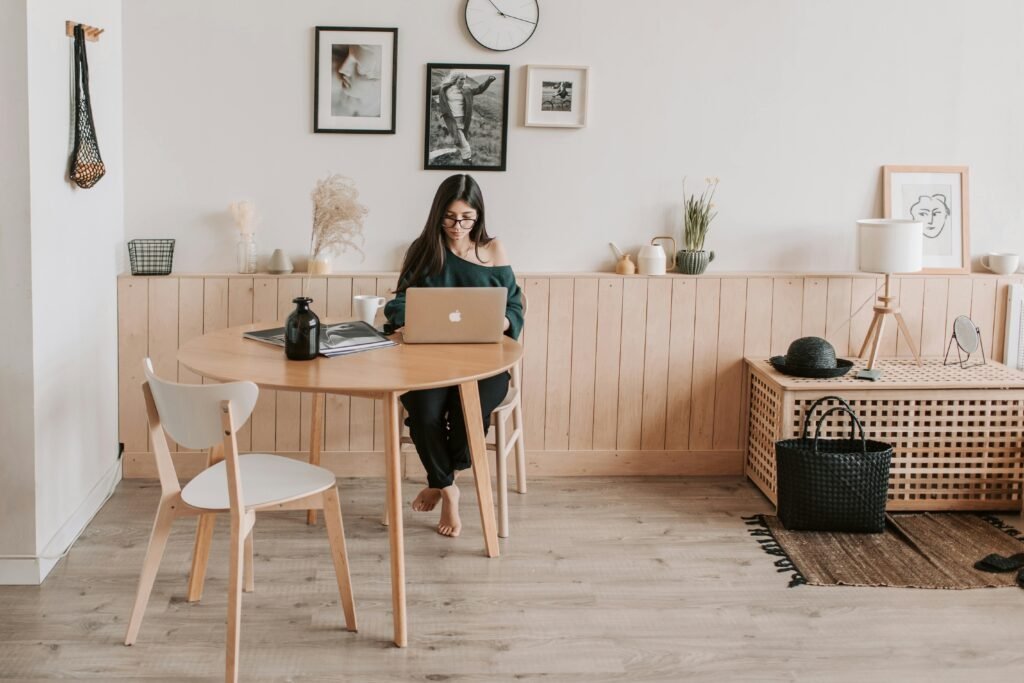
Minimalism isn’t just about cleaning up your space; it’s about shifting your mindset.
It’s learning to focus on what truly adds value to your life while letting go of what doesn’t.
This approach helps cut out distractions, making it easier to connect with your goals and figure out what really matters to you.
According to Joshua Becker of Becoming Minimalist, “Minimalism doesn’t mean lack and deprivation.
Minimalism is a tool that can help us find happiness by steering us in the direction of what we truly desire.”
Think about it: having fewer unnecessary things means spending less time cleaning, organizing, and managing stuff.
That frees up mental energy you can use for something more fulfilling, like exploring a new interest or reconnecting with friends.
People who’ve embraced this lifestyle often say they’ve discovered a renewed sense of purpose.
For example, someone might finally pick up that guitar they’ve had for years because they now have a clear, intentional space to play it.
Others may find they have more time for fitness, reading, or personal projects because they’re no longer overwhelmed by physical and mental clutter.
Minimalism can also help you spend your money more intentionally.
It’s about choosing quality over quantity and investing in things that align with your values.
That could mean saving for experiences like travel or learning a new skill instead of buying things that won’t make you happy in the long run.
Plus, when you’re more mindful about what you purchase, you naturally feel more satisfied with what you already own. It’s like you’re cutting out the noise and making space for the good stuff.
Even decision-making gets easier when you adopt a minimalist mindset.
You’re not constantly bombarded by options, whether it’s choosing what to wear in the morning or figuring out how to decorate your home.
The clarity that comes with minimalism allows you to approach life with a more focused and intentional perspective, which is a huge step toward personal growth.
Starting Your Minimalist Journey
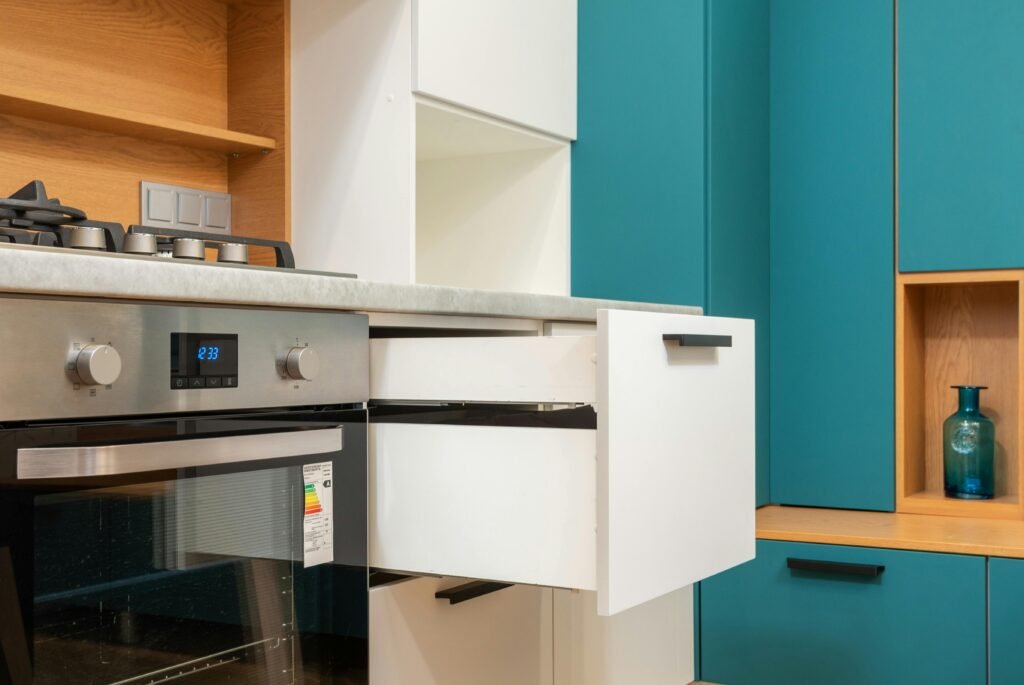
Figuring out where to start with minimalism can feel a little overwhelming, but it doesn’t have to be complicated.
Start small.
Pick one area in your home that feels manageable, like a single drawer, your nightstand, or even just your bathroom counter.
Focus on sorting through that space instead of trying to tackle your entire house at once.
Once you see progress, it’ll be easier to keep going.
As you go, set realistic goals for yourself.
Maybe you want to clear out your overflowing closet or organize that cabinet filled with kitchen gadgets you’ve barely used.
Break the process into steps that you can realistically handle, like dedicating 15 minutes a day or sorting through just one shelf at a time.
Little wins add up quickly, and soon you’ll notice your space feels lighter and less chaotic.
If you’re on a budget, minimalism can also help you cut down on unnecessary spending.
Take furniture and décor, for instance. By cutting furniture and décor expenses by 25%, you could save around $954 annually.
Entertainment costs are another area where you can simplify.
That extra cash can be used for things you care about, like traveling, trying a new hobby, or building an emergency fund.
To keep up the momentum, consider the purpose behind your items. Instead of hanging onto things “just in case,” ask yourself: Do I really use this? Does it make me happy, or is it just taking up space?
Being intentional about what stays and what goes makes the whole process easier and ensures that what’s left is truly worth it.
Donating gently used items is a great way to give back, while discarding broken or unusable stuff frees up even more space.
Another helpful tip? Give the one-in, one-out rule a try.
For every new thing you bring into your home, let go of something old.
This helps you avoid future clutter and keeps things balanced over time.
If you buy a new pair of shoes, donate or toss an old pair you no longer use.
Over time, this habit will make maintaining your minimalist lifestyle much more manageable.
It’s also a good idea to organize what you decide to keep in a way that feels functional and looks appealing.
For example, clear storage bins can help you see what you have without making a mess, or drawer dividers can keep smaller items from getting all jumbled.
Keeping things neat will make your day-to-day life feel smoother, and you’ll spend less time hunting for stuff.
Steps to Declutter Effectively
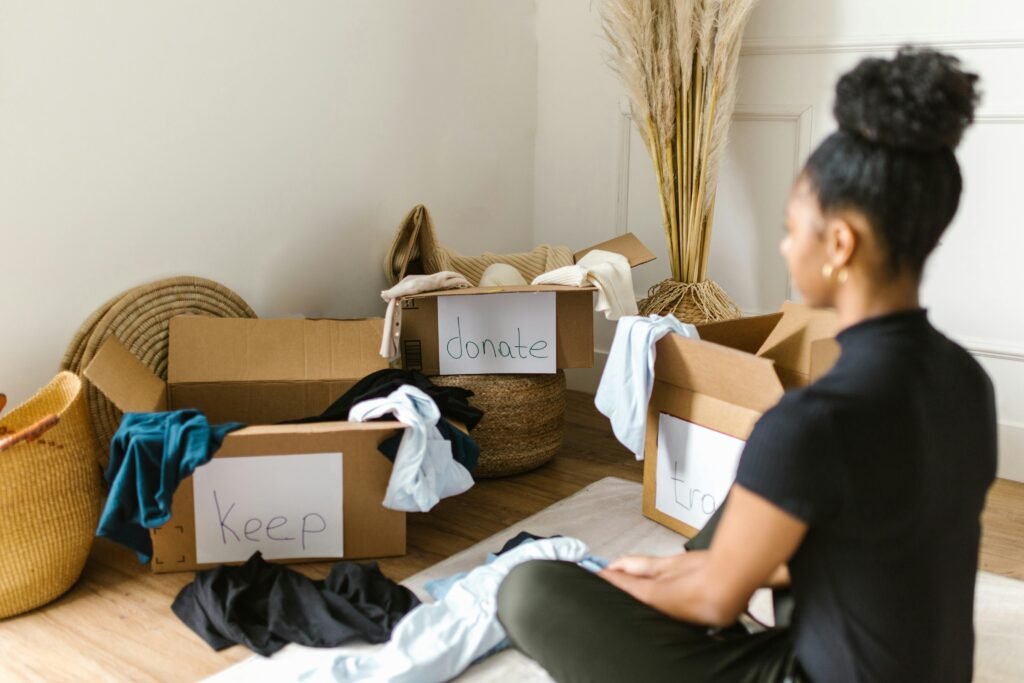
Alright, so you’re ready to dive into decluttering but not sure where to begin?
Start by tackling one small area at a time; think your junk drawer, bathroom counter, or that random chair in your room where clothes always pile up.
Keep it simple and manageable so you don’t burn out before you even get started.
Grab three boxes or bags and label them: keep, donate, and toss.
Then, go through everything in your chosen spot and decide which pile it belongs in.
Be honest with yourself; if you haven’t used something in over a year or it doesn’t serve a real purpose, it’s probably time to let it go.
When deciding what to keep, ask yourself questions like, “Do I actually use this?” or “Does this add to my life, or is it just here because I’m used to it?”
Don’t hang onto stuff out of guilt or because you “might need it someday.”
That mindset is what keeps unnecessary clutter around.
The goal is to make space for the stuff that really matters, not keep items just because they exist.
And hey, if something’s still in great condition but not useful to you, donating it is a great way to pass it along to someone who’ll actually appreciate it.
Once you’ve sorted a space, organize what’s left in a way that works for your life.
Use bins, baskets, or drawer dividers to keep everything neat and easy to find.
For example, put all your charging cords in one small box instead of letting them tangle up in random places.
Stack your most-used items within reach so you’re not constantly digging around for them.
Trust, an organized setup makes your daily routine feel way smoother.
Another tip? Start keeping an eye on what you bring into your space moving forward.
If you buy something new, make it a habit to get rid of an old item in exchange.
Got a new pair of sneakers? Time to toss the ones you’ve worn to death or donate that pair you haven’t touched in years.
This little habit keeps your space from getting overwhelmed again and makes sure you’re only holding onto the things that actually serve a purpose.
Don’t forget to check expiration dates too; especially for stuff like makeup, pantry items, or even cleaning products.
You’d be surprised how much space you can free up just by ditching things that are no longer usable.
And if you’re unsure about something, try setting it aside in a “maybe” box.
Revisit it in a month or two, and if you haven’t used it or thought about it, that’s your sign to let it go.
One last pro move? Take before-and-after pictures of your decluttering sessions.
Not only is it super satisfying to see the progress, but it also keeps you motivated to keep going.
Examples of Minimalist Living
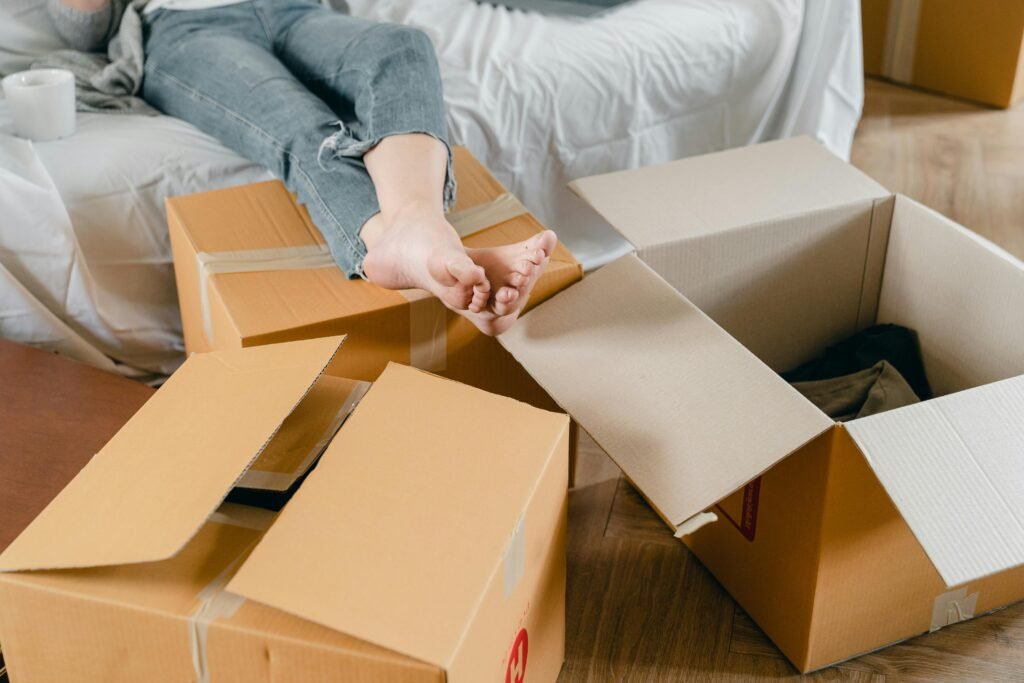
Minimalist living looks different for everyone, and that’s what makes it so cool; you can shape it to fit your life.
Some people take it to the extreme, like living in a tiny house with just the bare essentials.
Imagine having only what you truly need and love, with zero clutter taking up space or energy.
It’s all about making room for experiences and simplifying daily routines.
For instance, someone in a tiny home might have a multi-purpose table that doubles as a workspace and dining area, keeping things functional but minimal.
Others go for a more low key approach, like creating a capsule wardrobe.
This is where you cut down your clothing to a small collection of versatile pieces that can be mixed and matched.
Picture having fewer clothes but loving and actually wearing every single item.
You’re not standing in front of your closet for 20 minutes trying to decide what to wear because every option works.
It’s like having fewer decisions to make in your day, which gives you more time and energy for the stuff that matters.
For families, minimalism might mean focusing on fewer toys for kids.
Instead of a room overflowing with stuff, parents might curate a small collection of high quality, open ended toys that actually get used.
Things like wooden blocks or art supplies encourage creativity without overwhelming the space.
Plus, cleanup is faster, which is a win for everyone.
A lot of minimalist homes prioritize multi-functional furniture and clear surfaces.
For example, a coffee table with hidden storage is a game changer; it’s a place for your magazines, remotes, or board games but doesn’t add to visual clutter.
Or maybe you’ve got a folding desk that you can tuck away when it’s not in use, keeping your room feeling spacious.
The goal isn’t to feel deprived but to have a space that works for your lifestyle and feels calming to be in.
Then there are people who focus on simplifying specific areas of their life.
For example, someone might completely overhaul their kitchen, only keeping cookware and utensils they use regularly.
Imagine opening your cabinets and instantly finding what you need; no more digging through stacks of mismatched lids or unused gadgets.
This kind of simplicity not only saves time but makes cooking feel less like a chore.
Another common approach is scaling back on decorations.
Instead of every surface being covered in knick-knacks or random decor, minimalists might stick to a few meaningful items, like family photos or a single piece of art that sparks joy.
A cleaner look doesn’t just make a room feel bigger; it also creates a vibe that’s more relaxing and intentional.
Even travel can be a chance to embrace minimalism.
Some people swear by packing light; think one carry-on for an entire trip.
It forces you to bring only what you really need, making the whole experience less stressful.
No more lugging around huge suitcases or digging through a pile of stuff just to find your toothbrush.
Benefits of Minimalism for Mental Health
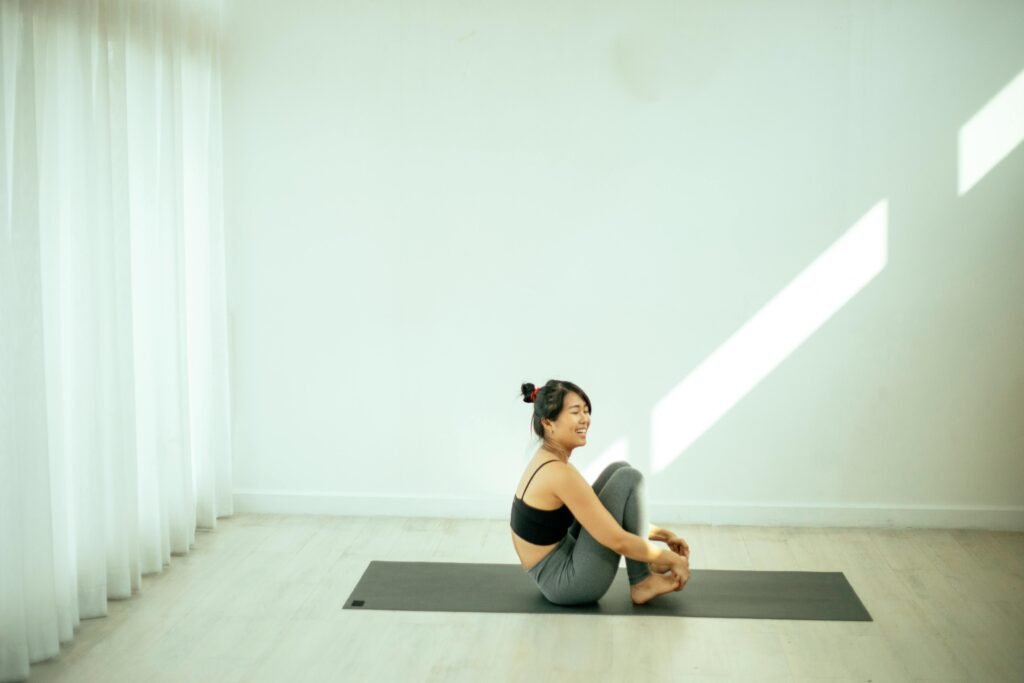
Living with less doesn’t just clear your space; it clears your head, too.
When you’re not constantly surrounded by piles of stuff, your brain doesn’t have to work overtime processing all that visual chaos.
That feeling of calm you get when everything’s tidy and in its place? That’s not just a vibe; it’s science.
Studies have shown that a clutter free space can lower stress and anxiety, making it easier to relax and recharge.
It’s like giving your mind some much needed breathing room.
Minimalism can also help you focus better.
When your environment isn’t full of distractions, it’s way easier to concentrate on what’s in front of you.
Whether you’re working on a project, studying, or even just trying to enjoy some downtime, a clean, organized space lets your brain stay on track instead of jumping all over the place.
It’s like creating a mental blank slate so you can think more clearly and get stuff done without feeling overwhelmed.
Another underrated benefit? Simplifying your space can actually boost your mood.
Surrounding yourself with only the things that make you happy or serve a purpose creates an environment that feels good to be in.
It’s the whole “less is more” idea; by cutting out the noise, you’re left with what truly matters, and that sense of purpose can be really grounding.
Plus, there’s something super satisfying about looking around and knowing everything you own has a place and a purpose.
For people who struggle with decision fatigue, minimalism is a game changer.
Fewer things mean fewer choices to make.
It’s easier to decide what to wear, what to cook, or even what to do with your free time when your options are intentional and not just a cluttered mess.
That mental clarity frees up energy to focus on self-improvement or chasing your goals instead of wasting it on endless decisions about stuff that doesn’t really matter.
Even your downtime can feel more meaningful with a minimalist approach.
When your home is in order, you’re less likely to spend time stressing about cleaning or organizing, and more likely to actually relax.
Whether that means reading a book, meditating, or just binge watching your favorite show, it’s easier to enjoy those moments when your surroundings aren’t silently screaming for attention.
And let’s not forget about sleep.
A calm, uncluttered bedroom can seriously improve your rest.
When there’s no random stuff scattered everywhere, it’s easier to wind down and let go of the day.
Quality sleep is key for mental health, and a minimalist space can help set the tone for better, deeper rest.
At the end of the day, minimalism isn’t just about owning less; it’s about creating a space and lifestyle that supports your mental well being.
By clearing out the unnecessary, you’re not just tidying your home; you’re creating a foundation for a healthier, happier mind.
